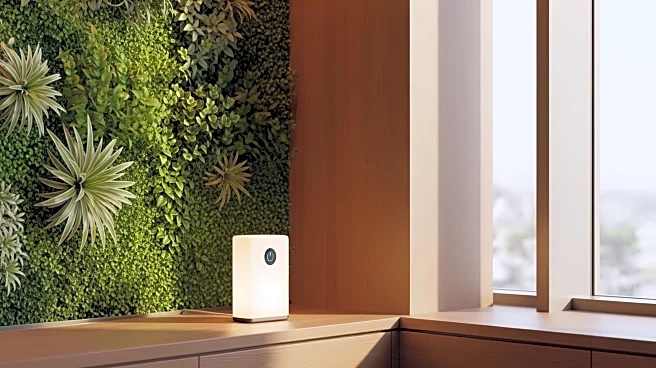What's Happening?
The hospitality industry is exploring the future of hotel guestrooms, with predictions for 2075 focusing on intelligent and adaptive bedrooms, design and architecture, labor and service, and cultural spaces. Industry professionals, including CIOs, CFOs,
and educators, participated in focus groups at HITEC 2025 to discuss these themes. The future guestroom is expected to integrate artificial intelligence and large language models, creating a tech-savvy yet human-centered environment. Biophilic design, which incorporates natural elements and sustainable materials, is anticipated to become standard, enhancing both aesthetic and health purposes. The industry is also considering the role of robots in labor and service, with human staff focusing on emotional and experiential service.
Why It's Important?
The transformation of hotel guestrooms has significant implications for the hospitality industry, affecting guest experiences, operational efficiency, and sustainability practices. The integration of AI and biophilic design could enhance guest satisfaction by providing personalized and wellness-focused environments. The shift towards automation in labor and service may reduce operational costs and improve service delivery, while also raising questions about the future role of human staff. The emphasis on cultural and behavioral spaces reflects a growing demand for authentic and immersive experiences, which could drive innovation in hotel design and marketing strategies.
What's Next?
As the hospitality industry moves towards 2075, companies are expected to continue experimenting with adaptive design and wellness-driven amenities. The development of ethical data systems and rethinking labor structures will be crucial for adapting to future challenges. Organizations that embrace these transformations will likely define the hospitality landscape of the future. The industry will need to balance technological advancements with human-centered service to meet evolving guest expectations.
Beyond the Headlines
The focus on biophilic design and sustainability aligns with broader societal trends towards environmental consciousness and wellness. The potential for AI-driven sleep optimization and personalized cultural immersion highlights the industry's commitment to enhancing guest well-being. The discussion around labor and service raises ethical considerations about the future of work and the importance of equitable pay and professional recognition. The industry's ability to adapt to these changes will be critical for maintaining competitiveness and relevance in the future.
















